H.O.P.E. Coalition targets opioid addiction, overdoses in Stark County's Black communities
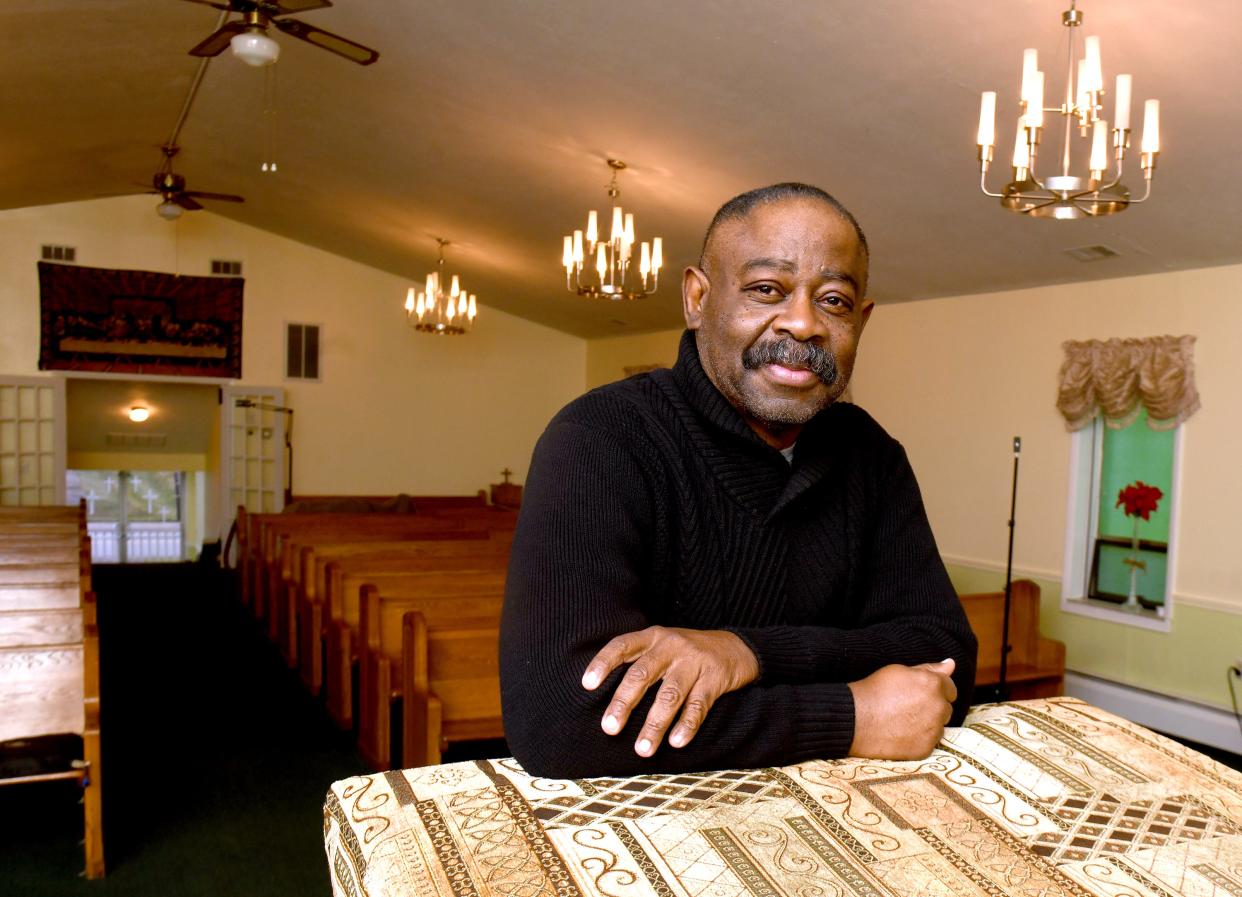
CANTON − A pastor's deep concern for the health of the community he serves has led to the formation of a coalition to increase awareness and access to treatment for opioid overdoses in the Black community.
The Rev. Michael A. Pressley Sr., senior pastor of the Mount Zion Church of God in Christ and founder of the H.O.P.E. Coalition (Health Overdose Prevention Education), contends the prevalence of opioid addiction and overdoses among Black people does not receive the same attention and resources as other communities.
Part of the problem, Pressley said, is media coverage, which often casts the epidemic as something largely impacting white Americans.
"Since 2016, the deaths in the African-American community attributed to overdose has quadrupled," Pressley said, noting that deaths from opioid overdoses have jumped from 5.9% to 20% among Black residents in Canton.
Pressley said the initiative came out of a longtime collaboration between the nonprofit Zion Community Development and the Canton City Public Health. The two entities have collaborated on awareness events, including COVID-19 clinics and health fairs.
Overdoses: 'You started seeing people drop dead': Overdoses strike Stark County's Black community
"We decided that what we're going to do is get out and educate our community as to what opioids are doing to our people," he said.
Pressley said that in addition to a lack of such amenities as grocery stores, most predominately minority communities in Stark County — and southeast Canton in particular — also lack easily accessible health care resources.
"We feel the disparity is because those services aren't readily available," he said. "I believe it's why our partnership has been vital in our community. I tell people all the time, Canton is not a large community, it doesn't take 30 minutes to go from one part of town to another, but even in Canton there are those who have transportation issues."
The city health agency has helped the coalition conduct "pop-up" sites for naloxone giveaways since 2022. The nasal spray, which goes by the brand name Narcan, can reverse the effects of an opioid overdose.
Pressley said that when the health department gets an alert about overdose increases, it contacts the H.O.P.E. Coalition.
"We can set up within 24 hours in that community," he said.
A naloxone stigma among opioid users in Stark County
Giveaways have been done through neighborhood tours and at public events like Juneteenth, the African American Arts Festival, neighborhood and church fairs, and outside of the Black College Football Hall of Fame celebration at Centennial Plaza.
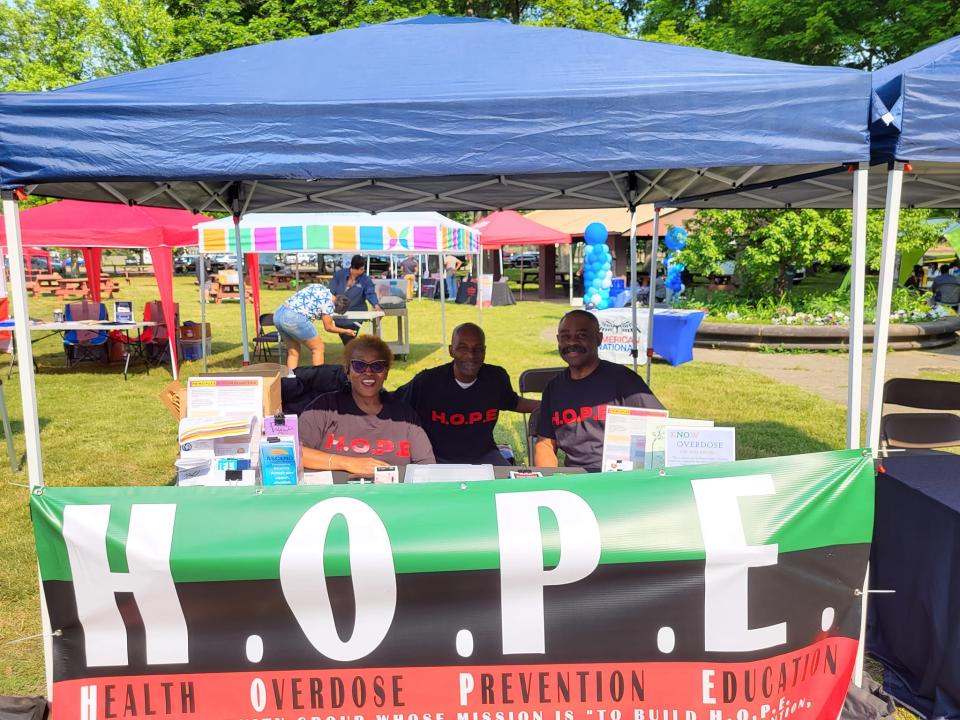
"There's a stigma for many people when we offer them Narcan," Pressley said. "They say, 'I'm not doing drugs' or 'I don't hang around those people.' We've also dealt with the other end of the spectrum, with people saying, 'Let them die.' We tell them it's for individuals around you who may be doing recreational drugs."
In 2020, the Canton City Board of Health adopted a resolution declaring racism a public health crisis. The agency later introduced "KNOW Overdose," an outreach of the National Harm Reduction Coalition, which identifies eight key factors connected to accidental overdoses as well as harm-reduction techniques.
Michelle Williams Streetman is the city health agency's overdose prevention program coordinator.
"So far, they're doing an excellent job," she said of the coalition. "Pastor Pressley and I have been working together on some things since 2019, and we'll be working with the coalition this year on some strategic planning to hone in on what the coalition's mission and focus is. I think they're doing an excellent job, and I think that if they keep moving forward with the same intention and motivation they have right now, they are going to have a huge impact in the community."
Targeting accidental drug overdoses in Stark County
The coalition's primary source of funding to purchase naloxone (a $45 kit) has been through a two-year, Healing Communities grant from Case Western Reserve University.
The Rev. Wilbur Allen III, senior pastor at All Saints Temple at 1451 Wilbur Allen Jr. Ave. SE, said his church gives out naloxone during grocery giveaways.
"Where our church is located, we see the needs down there," Allen said. "It's a concrete way to deal with this issue. Of course, we deal with the spiritual, but it provides the opportunity to impact folks right where they're at. That opens the door to the spiritual."
Pressley noted that most drug overdoses are accidental, many caused by people who unknowingly ingest recreational drugs laced with fentanyl, a powerful and often-deadly synthetic opioid.
"It kills them first use," he said.
He also stressed that not all opioid overdoses or addictions are the result of street drugs. In the early days of the current opioid epidemic, millions of Americans were prescribed oxycodone, a powerful opioid blamed for thousands of overdose deaths.
"It's not just people taking recreational drugs; it could be your dad, your mom," he said. "My father was put on pain management in his 80s. The doctor told him to 'Take as needed.' He was 89 years old; he was taking them every hour. When I went over to take his prescription to be filled, the pharmacist said, 'Whoa, this is halfway done and he just got this two weeks ago.' I started handling his medication for him. We have to educate people."
One of H.O.P.E. Coalition's main focuses this year will be more partnerships and collaboration with local churches and other agencies in helping addicted people secure treatment.
"We want to get individuals into treatment; you can give people Narcan over and over," Pressley said. "A lot of African Americans don't know what treatment looks like."
Charlotte Williams oversees the coalition's harm-reduction clinics.
"It's not just about training, it's also about people who are not ready to stop using," she said. "We want to keep them safe until they are ready, so it includes such things as needle exchanges. I've talked to people who didn't realize it was an issue in the Black community because of ads and media coverage. They thought it was a 'white' problem."
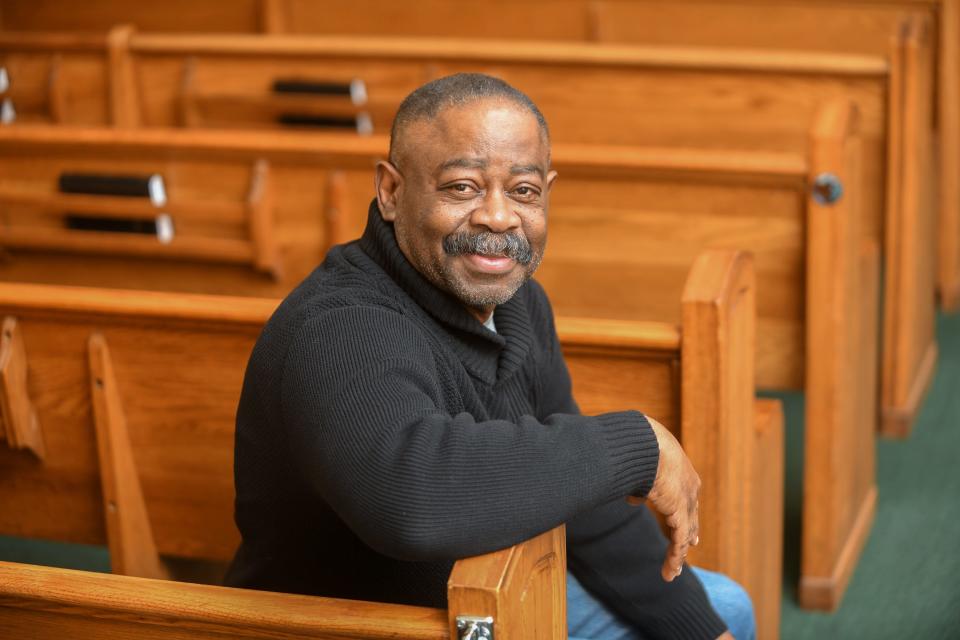
Pressley: Ministry is more than going to church
Harm reduction is not advocating drug abuse, according to Pressley.
"Our mission is to save lives," he said. "Everybody is thinking recreational drugs all the time, but we have church members who are on prescription opioids. The doctors are prescribing Vicodin and Percocet. Our job is to save lives."
On Dec. 21, the initiative hosted "H.O.P.E. for the Holidays," a Christmas party for 15 families impacted by the epidemic at the Southeast Community Center. Co-sponsors included the city health and police departments and the MK Morse Co.
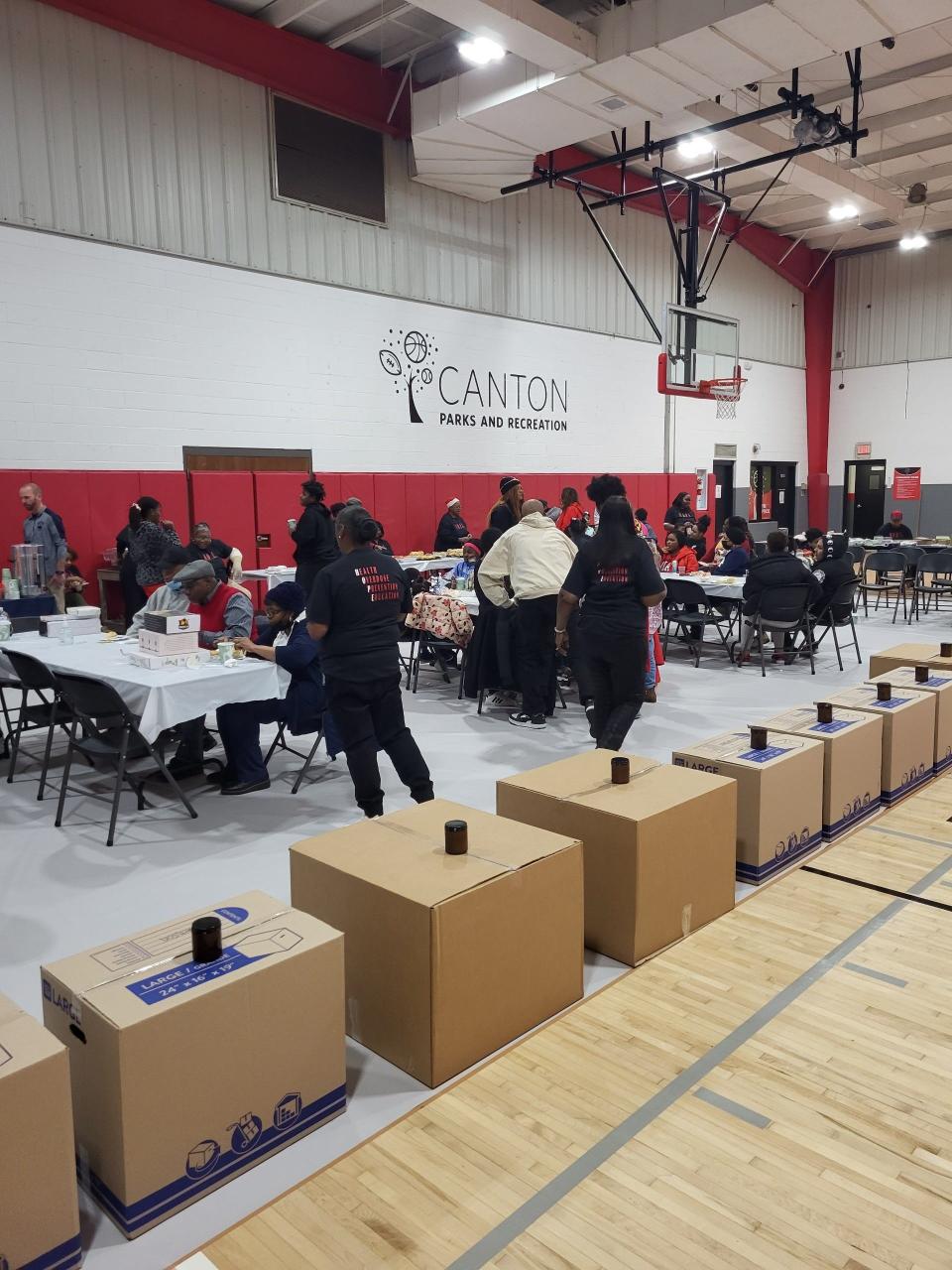
"We did a complete Christmas for each family," Pressley said, including food and gifts, and a candle of remembrance for those lost to overdose.
The coalition meets at 5 p.m. on the fourth Wednesday of every month at the Stark Library's main branch at 715 Market Ave. N. New members are welcome. For more information, contact Pressley at pressley@sbcglobal.net.
Pressley said the coalition has encountered resistance from churches who misunderstand the mission.
"It's understanding that ministry is more than going to church. It's reaching out to the community and seeing they have needs," he said.
"Because we are faith-based organization, we have let people know we are not condoning drug use. I'm a former drug abuser myself. Hope is what were giving people. Our hope is in Christ. Narcan stays in the system for 90 minutes. Jesus Christ can save your life for eternity."
Reach Charita at 330-580-8313 or charita.goshay@cantonrep.com.
On Twitter: @cgoshayREP
H.O.P.E. Coalition core members
The following individuals are members of the H.O.P.E. Coalition, which is trying to bring awareness and treatment surrounding the opioid epidemic to the Black community in Stark County:
Rev. Michael A. Pressley Sr., Mount Zion Church of God in Christ/Zion Community Development Corp.
Rev. Wilbur Allen III, All Saints Church of God in Christ
Rev. George Lancaster, Zion Temple Church of God
Rev. Eric Thompkins, Pentecostal Temple Church of God in Christ
Rev. Raphael "Ray" Cox, Light In Christ Church/Drop in Center
Rev. Shawn Lemon, Sherrick Road Church of God
Michelle Williams Streetman, overdose prevention program coordinator, Canton City Public Health
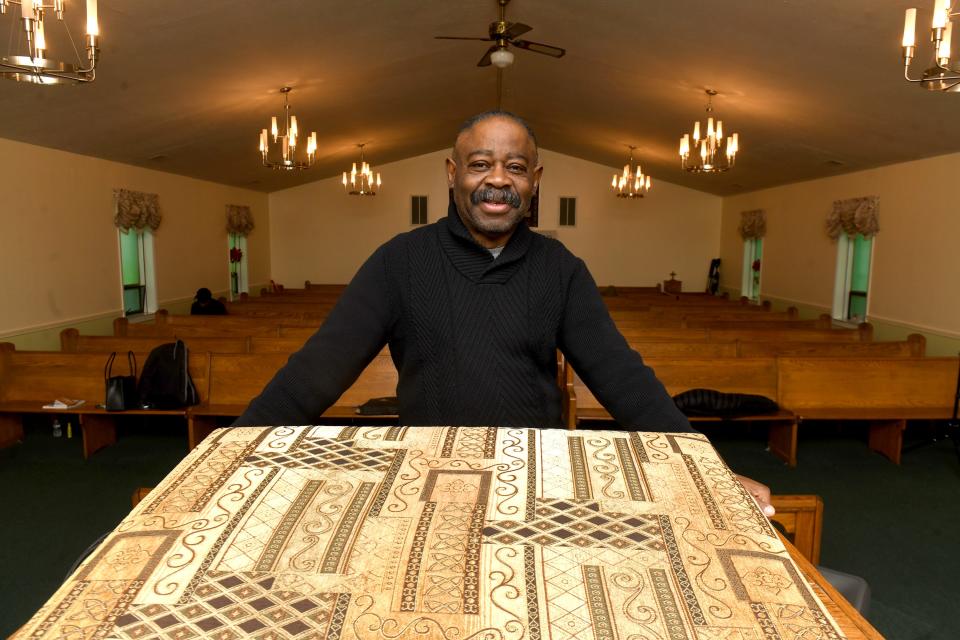
This article originally appeared on The Repository: H.O.P.E. Coalition addresses disparities in drug overdose prevention

